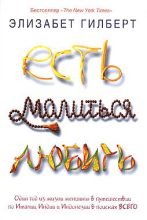- 1
- 2
- 3
- 4
- 5
- . . .
- последняя (32) »
present state of spiritual exhaustion does not look attractive… A fact that cannot be disputed is the weakening of human beings in the West, while in the East they are becoming firmer and stronger. Six decades for our people and three decades for the people of Eastern Europe: during that time we have gone through a spiritual training far in advance of Western Experience. Life's complexity and mortal weight have produced stronger, deeper and more interesting characters than those generated by standardized Western well-being.
Americans, considered as a whole, are woefully ignorant of history, even their nation's own. Government reports [31] have documented these lamentable conditions, which have long dismayed and pained those sensitive, educated souls here, who revere truth and knowledge, understanding and mind, art and culture. The majority of people seem, as if, “engulfed” in some more or less solipsistic “present”; one in which only their own immediate experience, time and perspective, have any real meaning and value to them. A problem — reconsidered — by the American educator Benjamin Ide Wheeler, in an article, almost a century old:
Alexander Solzhenitsyn, 1978, Harvard. [21]
The Spiritual Call in the “American Dream”,
What is the prevalent, popular image of the achieved “American Dream”, the successful, accomplished “good life”, in the United States of America? Is it not some variation on the image of living in a large, luxurious, private home, surrounded by land, lawn, and trees; with all the fashionable interior decorations, and inside and outdoor amenities — and servants — which make life easy, comfortable, convenient, and enjoyable; plus many of the various playthings and goods of leisure and entertainment such as a pool, boat, tennis court, etc, etc; plenty of food and clothes, etc, etc. And of course a good lucrative job — if one must work at all — which brings in, preferably, much more than enough money to support one’s “lifestyle”, and as much leisure and vacation time as possible. Yet, what if an exhaustive concern with the successful acquisition of this “American Dream”, requires such labor, that it leads to psychic, spiritual, social and cultural impoverishment. What if the psychic and spiritual cost, to an individual — and society—, of the grand luxurious home and the materially-rich lifestyle in “this world” [22], is infinitely greater than the labor necessary to acquire the hundreds of thousands or millions of dollars it requires to gain and maintain such “success”? What is the spiritual result, of the kind of activities, interests and involvements with life, pursued in such homes, in a nearly exclusive concern with an earthly-physical enjoyment of life, with little or no concern for inner development, soul refinement, self-education or similar? What if such worldly worry, commitment and involvement entails, that when one “passes” — as shall all flesh — from “this world”; that one finds oneself to live in some psychic shanty shack, in a spiritual slum in the “life beyond death”? An individual’s possessions, real estate holdings and properties are considered primary assets in this world; but how many Americans are sufficiently interested and concerned, so as to read Dante’s “real estate” prospectus [23] concerning future “properties” in the spiritual worlds; and worry the inner possessions which they will or will not bear in themselves through the grave of death. Americans build their “homes” on earth, with the materials of earth and nature. The “American Dream” is certainly not primarily sought in the “Kingdom of Heaven”, by way of soul and spirit. It exists, and is pursued in “this world”; this side of death. It is predominately, a “horizontal” conception; at least as it is commonly conceived. It is certainly not such a “vertical” conception of life as was present in Medieval Christendom. But it might be well, or better, if it were; if somewhat more grave consideration were given, as to how “homes” are built in that world, into which many sincerely hope and pray that they will someday journey in the “hereafter”. Is not the common ideal image of an accomplished ‘“American Dream’ come true”, some leisurely, pleasurable, materially plentiful, comfortable earthly life in some “paradise”, “Shangri-La”, or “Garden of Eden”? Is this not, generally speaking, the goal towards which many, many Americans — consciously or unconsciously — work and aspire; and which it is their desire to acquire and enjoy? (Many seem to have forgotten, however, a small aspect of the story of the Garden of Eden. For it is said to be guarded by an angel, — with a flaming sword. It is dismaying to consider how many imagine it as some place surrounded by a golf-course; or a peaceful, sensual life on an island filled with luscious fruits, and palm trees wisped by a gentle breeze.) That “home”, which is the preponderate worry, labor and goal in America — and much of Western and human culture — is, indeed, an earthly home. It is certainly not the common conception, of the aspiration and goal of the "American Dream”, to imagine it as the psychic building of some spiritual estate of inner properties. Working and striving to live in some exclusive, luxurious residential area of our earthly civilization, is profoundly different from striving to build a satisfying home, to which the biblical inscription inside of the main reading room at the University of California Berkeley, gives indication: Sapientia aedificavit szibi domum; venite comedite panem meum et bibite vinum quod miscui vobis (Wisdom has built herself a house: ‘come and eat my bread, drink the wine I have prepared, Proverbs 9:1 and 5.) This concerns, rather, a very different, inner house [24], to have as one s life s goal! Few have accused recent Americans [25] of being too “medievally” preoccupied with life in the world to come. Our occupations are predominately with the “Kingdoms of this world”. Indeed, Americans have come to be known, characteristically, as concerned with an earthly, material life on earth. If long, hard and devoted hours of soul and spiritual labor is required for achieving a “high standard of living” in Heaven (there are, it seems, also other locations!); then America should perhaps seriously re-evaluate its “American Dream”, and the labor it directs towards such realization-especially if it is concerned with its spiritual economic (eco+nomy [26]) future and security! The loss of a deep, central spiritual (“vertical”) sense, labor, concern and evaluation of life — which is a characteristic not only of America, but also of expanding portions of the modern, “enlightened” world — has led to many of the misconceived excesses, which seem to have become commonly accepted as parts of our civilization, culture and daily lives. Certainly the national government of the United States of America does not force us into some radical earthly secularly — as was, and is the case, undo aggressive atheist regimes [27]. Indeed, it fundamentally leaves us free to worry, individually and as a people, our own personal “religious” concerns and beliefs: “Congress shall make no law respecting an establishment or religion, or prohibiting the free exercise thereof;…” [28] Which has the effect that the spiritual achievement or failure, condition and future, of the United States of America, is the responsibility of the American people themselves. We shall soon see how such an idea, and ideal, is an original, vital, essential element of the idea and realization expressed in the term “American Dream”. No government — however much it may successfully strive to solve the problems of human society and civilization — shall ever be able to solve the questions and problems of the meaning and purpose of life, and death. If we, in the USA, listen to “Washington” for such words of sense and truth, as can only be spoken by some living spiritual source; then we shall surely hear wrong counsel. The President of the USA is not, and should never be imagined as being, as he is sometimes called: “the spiritual leader of our nation”. He is a political head of state, in a nation which is, in origin and by nature, a worldly, secular state. We have no traditional spiritual leader in common, to which all our people give some fealty. In other words, the President speaks — though it seems perhaps a bit odd to use these ideas to express it — for a “kingdom” which is very much “of this world”. The office certainly does not pretend to “the Divine Right of Kings” [29]. (Whoever is President, holds their own individual personal stance towards “the kingdom which is not of this world”.) It is disoriented, misconceived and deeply erred, to imagine otherwise. The President is, indeed, the leader of our nation; but he is most definitely not the Voice of God to America. We are not, here, in the United States of America, lead in our spiritual lives, by some King, Czar, Pope, Ayatollah or other spiritual leader, who is common to us all. (Though there is a great pluralism of religious leaders of many religions, in this country; we all partake of no one such leader, common to all.) And here we come, face to face, with one of the deeper problems of the USA; the pluralism of “Gods”. We have, as a nation, people and culture, few commonly shared “ultimate truths” to our lives as Americans; unless you consider MacDonald’s hamburgers, baseball, television news, sit-coms and malls, or “your god”, as anything but shallow secular substitutes for deeply shared experience, ideas and ultimate values. Indeed, though our dollars, secular government, civic ceremonies and occasions, do often state, in one generally acceptable way or other “In God We Trust”; this is all fine, only so long as we does not inquire too clearly, just what each of us, amongst our millions, understand by “God”. So we maintain, politely and politically, our generic “God”, to bless and guide the public occasions of our state and society. And while this is, perhaps, “a necessity of state”, it is hardly an adequate relation of a society to “God”. There is a tremendous need, and call, for a renewal of “moral values” in the USA in our time. But to the degree that such values are founded in and sustained by religious belief in “God” or other, we shall hardly be able to simply reestablish common religious values; for we do not have a common religion — not to mention the large quantity of secular agnostics in our society. Social, civic, humanitarian “morality” is about the most that can be commonly preached to all, in this secular nation. But it is doubtful — to this author at least — that any such revival of civic virtue and morality, will ever be an adequate substitute for religious morality and injunction; and thus this shall remain a continuing problem for America. [30]* * *
Americans, considered as a whole, are woefully ignorant of history, even their nation's own. Government reports [31] have documented these lamentable conditions, which have long dismayed and pained those sensitive, educated souls here, who revere truth and knowledge, understanding and mind, art and culture. The majority of people seem, as if, “engulfed” in some more or less solipsistic “present”; one in which only their own immediate experience, time and perspective, have any real meaning and value to them. A problem — reconsidered — by the American educator Benjamin Ide Wheeler, in an article, almost a century old:
Socrates, in the Phaedo, compares the people of his day, who thought their world about the Ægean to be the whole, to ants and frogs about a marshy pool. The ants and the frogs we have ever with us. They are the antiquarians of Copenhagen to whom Danish history is the history of the world. They are the school committee men who insist that Kansas schools should teach only Kansas history and Kansas geography and Kansas weather. They are the political historians
- 1
- 2
- 3
- 4
- 5
- . . .
- последняя (32) »







